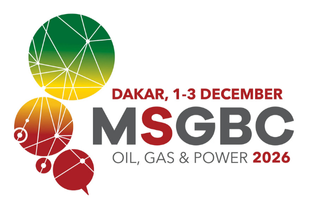Conjuncta CEO Highlights $34B Green Hydrogen Project Progress in Mauritania
)
The Mauritanian parliament approved a landmark green hydrogen code this year, paving the way for billions of dollars in renewable hydrogen investments. The new code outlines tax incentives and the fiscal framework for green hydrogen producers, offering the regulatory clarity needed for project development. Among the initiatives underway is a $34 billion green hydrogen project led by German firm Conjuncta and Egypt's Infinity, with plans to produce up to 8 million tons of hydrogen-based products annually and a 10 GW electrolyzer capacity. In an interview with Energy Capital & Power, Conjuncta CEO, Professor Stefan Liebing, highlighted the project's progress, infrastructure and hydrogen transport solutions.
Regarding your green hydrogen project in Mauritania, can you provide updates on the progress of your collaboration with Infinity Power, the JV between Infinity and Masdar? What milestones have been achieved so far?
Conjuncta and Infinity Power Holding are working intensively on the development of the project in line with the agreements concluded with the Government of Mauritania. We have completed some important studies and are now waiting for the Government to confirm its plans for the development of required infrastructure that are an important input for next phase studies that will commence soon in line with the project plan.
For the Mauritanian economy, what are the expected applications and benefits of this green hydrogen project, particularly in terms of energy independence and economic growth?
Mauritania has – with the big investment projects under discussion – the potential of becoming one of the leading producers and exporters of green energy worldwide. In order to facilitate the financing of these large projects, a significant share will need to be earmarked for export to creditworthy international offtakers. Mauritania will not only benefit from jobs created from such projects, but also from tax income and other fees as set out in the green hydrogen code. This will contribute to the economic growth of the country. Over time, we believe that a substantial amount of the green hydrogen can also be used with offtakers within Mauritania. This will give further momentum for the development of industries and of course reduce Mauritania’s dependency on energy imports.
In terms of exporting green hydrogen to Europe, what is your strategy for either liquefying the hydrogen or refurbishing the existing pipeline between Spain and Morocco to facilitate transport?
The exact technical solution is subject to ongoing studies and discussions and will also depend on the Government’s strategy for the development of logistics infrastructure. In general, we are convinced that transport of hydrogen in the form of derivatives by ship has some advantages and can be a solution that can be implemented fast.
What do you see as the key advantages of West Africa for becoming a major player in the global hydrogen market?
West Africa has quite a few important advantages. Firstly, its geographic vicinity to European offtake markets and therefore low logistics cost. Most importantly, West Africa has a unique combination of good wind and solar sources that make green electricity competitive. And last not least, we believe in Mauritania because its good business framework and political stability.
Looking ahead to the MSGBC Oil, Gas & Power 2025 conference, how important is this event for attracting international investment into green hydrogen and other renewable energy projects in the region?
It is highly important. Initial projects have been awarded on the continent. Now the key to success and accelerated implementation is to bring together developers and investors, technology providers, educational institutions, international offtakers, shippers and lenders. MSGBC will play an important role in doing so and will therefore contribute to a successful development of the sector in West Africa.

